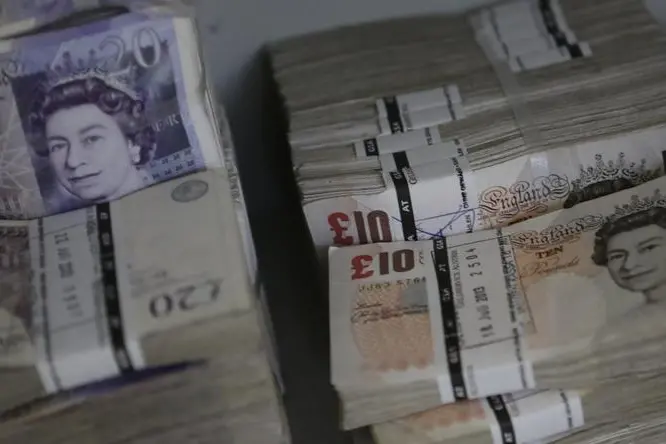PHOTO
By Jemima Kelly
LONDON, Dec 2 (Reuters) - A stronger sterling looked headed for a fifth consecutive week of gains against the euro on Friday, its best run in nine months, as investors' fears eased that a "hard Brexit" would see Britain lose access to the European Union's single market.
The pound jumped to a three-month high against the single currency
And investor jitters were soothed further overnight, when a pro-EU Union Liberal Democrat candidate won a parliamentary seat previously held by the ruling Conservative Party on Friday, in a vote considered a protest against a hard Brexit.
"That (by-election) has its own idiosyncrasies, so it's important not to overinterpret things," said UBS Wealth Management currency strategist Geoffrey Yu. "But that plus the comments we've had this week probably has helped to shift the narrative somewhat.
"What's now being priced in is greater resistance to a hard Brexit."
Sterling was up 0.1 percent at around $1.26 by 1000 GMT, having climbed almost 1 percent over the course of the week. And after recording in November its strongest month against the single currency in eight years, sterling climbed 0.2 percent to 84.45 pence per euro.
Data released on Friday showing growth in Britain's construction industry unexpectedly touched an eight-month high in November, while its costs rocketed at the fastest pace since 2011, had little impact on the currency.
Asked on Thursday by a lawmaker if the government would consider making "any contribution in any shape or form" for access to the EU's single market, Brexit minister David Davis said it would. He said the government would seek "the best possible access for goods and services to the European market".
A spokesman for EuroGroup President and Dutch Finance Minister Jeroen Dijsselbloem said on Thursday the situation for Britain after Brexit should not be better than for countries in the bloc, but that it was possible to "design new agreements to allow (Britain) to enter the internal market and to allow trade to continue".
"For the first time since Brexit we have had two clear signals of a potential way in which progress might be made between the EU and the UK over reaching a deal on Brexit," said MUFG's European head of global markets research, Derek Halpenny, referring to Davis's and Dijsselbloem's comments.
"The comments to us suggest a further easing in fears over a 'hard' disruptive Brexit that should allow the recent out-performance for the pound to continue," Halpenny said.
((jemima.kelly@thomsonreuters.com; +44)(0)(20 7542 7508; Reuters Messaging: jemima.kelly.thomsonreuters@reuters.net))





















